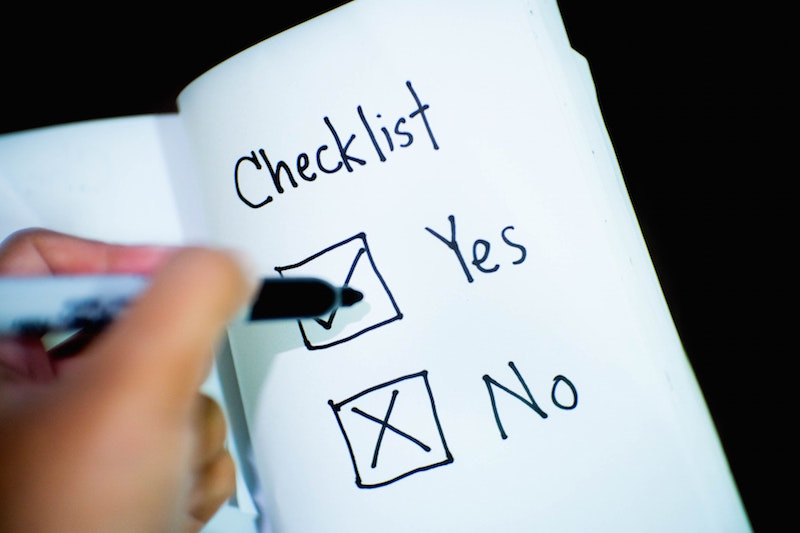You’ve got a great idea and financial backing. You’re just about to launch into a brand new chapter starting a business. It’s exciting and probably a little daunting as there’s so much to think about. And it’s also the time to take a few minutes to sort out the paperwork essentials like business insurance. Without it, your new venture could fail before it’s already started. Not sure where to start? Our beginner’s guide to business insurance explains the different types of insurance you need to make your new business a success.
1) Meet your legal obligations with employer’s liability insurance
What is it?
Employer’s liability insurance pays your legal costs if a member of staff is injured, falls ill, or their property is damaged by something to do with your business. It covers the cost of defending a claim as well as any compensation that is awarded. The minimum amount covered is usually £5million, but depending on the size and type of your business, you may need more. This might seem like a lot, but it needs to be able to cover the lifelong care of your employees if they are injured.
Who needs it?
It’s a legal necessity if you employ any members of staff, including part-time and seasonal workers. If you hire contractors who use your equipment you also need to have it. The only exceptions are if it’s a family business and you employ a close family member or if you are the only employee of your company and own 50% or more of it’s share capital.
 If you don’t have employer’s liability insurance, you can be fined £2,500 a day for any time you don’t have the right cover.
If you don’t have employer’s liability insurance, you can be fined £2,500 a day for any time you don’t have the right cover.
For example:
Employer’s liability insurance covers a wide range of claims that could be made against you by your staff. This includes:
- A member of staff develops cancer as a direct result of exposure to carcinogenic materials at your business. They can sue your business and your employer’s liability insurance will pay your legal costs.
- A part-time worker slips on a wet floor in the kitchen of your restaurant. They are badly injured and unable to return to work. Your insurance will pay the legal fees and compensation including loss of earnings.
- Accidents from items falling or dropping.
- Hair dye leaks from a storeroom at your beauty salon directly onto staff lockers, damaging the designer handbag belonging to one of the team. Your liability insurance will cover the cost of replacing the bag.
2) Financial protection with public liability insurance
What is it?
Public liability insurance covers the same things as employer’s liability insurance but is designed for claims made by members of the public. This can include customers, visitors to your business, such as a delivery driver, as well as passers-by.
Who needs it?
Any business that comes into contact with the public should consider taking out this insurance. It’s worth noting that it is not a legal requirement. However, it may be a condition of contract for some clients, especially if you are working with the public sector.
It’s also worth considering that no win, no fee solicitors make it very easy for the public to make a claim against your business. They have little financial risk to themselves and a lot to gain. Even if you are found not negligent, it can cost a lot of money to get o that point. If you’re just starting your business, that can be money you don’t have spare.
For example:
 Common claims include:
Common claims include:
- Food poisoning or allergic reactions to mislabelled food. This makes it a prudent choice for anyone in the catering industry or dealing with food and drink.
- Slips and trips. You are responsible for providing a safe environment. Slips can be caused by a wet floor from a food spill or leak, a wet floor where rain has been walked in, or a loose step or tile. Trailing wires are another common cause of trips, and injuries can be surprisingly severe. These accidents could happen in any business, from shops or pubs to offices or factories.
- Damage to property. For example, you are visiting a client’s house on business and you spill something on their sofa or carpet. They can sue you to have the stain cleaned or the item replaced.
- Injury from moving items. For example, goods being moved around your business by a forklift truck can be a risk to visitors.
3) Safeguard your professional advice and decisions with professional indemnity insurance
What is it?
Professional indemnity insurance covers you if a client claims your work or advice was wrong and has lost them money. It’s also sometimes known as errors and omissions insurance. It covers the legal bills to defend your case as well as any compensation that is awarded.
Who needs it?
If you give advice or your professional opinion through your work, you should consider having this insurance. It’s also essential if you hold data or intellectual property on behalf of a client in case this information is compromised. It can help to take away the worry of making a mistake.
 For example:
For example:
There are lots of professionals who hold indemnity insurance, including:
- Healthcare professionals
- Accountants
- Builders
- Architects
- Chartered surveyors
- Health and safety consultants
- Graphic designers
- IT consultants
- Solicitors and lawyers
- Surveyors
The types of claims that you might face vary depending on your sector, but could include:
- A claim against an architect for the poor design of a garage that it is impossible to get a car into.
- As an IT consultant, you lose your client’s confidential information.
- If something you say is considered libel or slanderous, your professional indemnity insurance will fight the claim.
- If you accidentally breach copyright conditions, for example using a piece of music without permission, your professional indemnity insurance will cover the costs.
For more in-depth information, read What’s the difference between public liability and professional indemnity insurance.
4) Still pay the bills with business interruption insurance
What is it?
If something happens and you can’t trade, you’re still likely to have wages and suppliers to pay. Business interruption insurance is designed to tide you over.
Who needs it?
Any business, large or small, can benefit from business interruption insurance. Like all insurance, you never know when you’re going to rely on it.
 For example:
For example:
There can be lots of reasons why your business might have to temporarily shut. This could include:
- Flooding, fire or another disaster. For example, a gas explosion closes the road and you are unable to access your property for weeks or even months.
- Theft or vandalism.
- If something unexpected happens to a key supplier and you are unable to get the supplies that are essential for you to trade.
5) Stay on the move with commercial vehicle insurance
What is it?
If you use a car or van for business, you need special commercial vehicle insurance. Comprehensive insurance, including breakdown cover, is important if you rely on your vehicle to get you or your products to where they need to be.
Who needs it?
Any business that uses a vehicle to transport products, equipment, or people.
For example:
- Courier drivers or other driving businesses, such as taxi drivers and chauffeurs.
- Tradesmen who rely on a van, including electricians, plumbers, and builders.
- Specialist vans, including ice-cream vans and street food vans.
6) Peace of mind with business premises insurance
What is it?
Business premises insurance covers the buildings used by your business, including garages and outbuildings. It protects against fire, flood, and other damage by covering the cost to repair or rebuild it if something happens.
Who needs it?
Any business with a physical base that you own or part-own should consider it. If you own the property with a mortgage, it is likely to be a condition of the loan. If you lease the property, the building insurance should be covered by the owner, but it is worth double-checking.
Bear in mind that if you operate your business out of your family home, you’ll need to let your home insurance company know about it. Depending on the type of business you run, you may need to hold a commercial property policy instead.
 For example:
For example:
- A flood causes significant damage. Your buildings cover will pay for repairs or rebuilding the structure.
- Building insurance does not cover contents. To protect equipment financially, you’ll need to take out commercial contents insurance. This usually covers standard things, such as computers and office desks and chairs.
7) Keep your business safe online with cyber attack insurance
What is it?
Unfortunately, statistics show that it is not a case of if your business will be targeted by cyber criminals but when it will be. The BBC reports that over half of British businesses have suffered a cyber attack, with numbers increasing each year. The most common types of cyber crime affecting businesses in the UK are hacking, phishing, and ransomware.
Who needs it?
Any business that uses some form of digital communication, including email, is at risk of cyber crime. Remember, it’s not just those businesses with an online presence or that takes payments online that are targeted. In fact, cyber criminals are smart enough to know that it’s often the smaller businesses that are easier to target as they are less cybercrime-prepared.
Don’t automatically assume that your business insurance covers you for cyber crime. Instead, check the small print and speak to your insurance broker as it is better to be safe than sorry.
 For example:
For example:
The financial cost to your business can be significant in terms of:
- Time lost working. If the attack leaves your systems down you will be unable to trade.
- Compensation expenses to customers or contacts who are affected.
- The significant dent to reputation if you fail to act swiftly to put things right can be harder to put a figure on.
8) Other types of insurance for small businesses
We’ve listed some of the most common policies in our beginner’s guide to business insurance. But it’s important to remember that every business is different. You might need some or all of these types of cover. And there may be other types of insurance that can help your business too.
For example:
- Product liability insurance. This covers you if a product you have made, supplied or distributed causes a member of the public to become ill or damages their property.
- If your business uses specialist equipment, you might need to take out specific cover.
- If you have a car park that is spate to your main building, you may need separate land insurance.
- Private health cover. For you and your employees.
- Business travel insurance, essential for peace of mind during overseas business travel.
- Terrorism insurance cover. Acts of terrorism are normally excluded from business insurance premiums but can be covered separately if that is important to you.
9) Speak to the experts for advice
The best way to make sure that you have the right level of business insurance cover, without paying for anything you don’t need, is to speak to an expert. Our experienced team has been helping businesses of all sizes for over 30 years. From freelance bookkeepers to large manufacturing companies, our specialist teams are on hand to help. We’ll help you to decide what insurance your business needs. As we’re an independent insurance brokerage, we’re free to shop around the UK’s most trusted insurance companies. Our significant buying power lets us negotiate hard on your behalf. And that means we will find you the right deal at the right price. Call us for a free, no-obligation chat on 0117 9556835 or get a quote.
Conclusion
The right business insurance can support your new venture and help it to flourish. It may be the last thing on your mind, but taking the time to read our beginner’s guide above can give you the knowledge you need. Follow our advice to get the right insurance at the right price so you have one less thing to worry about.
For more advice for small businesses, read our blog.

